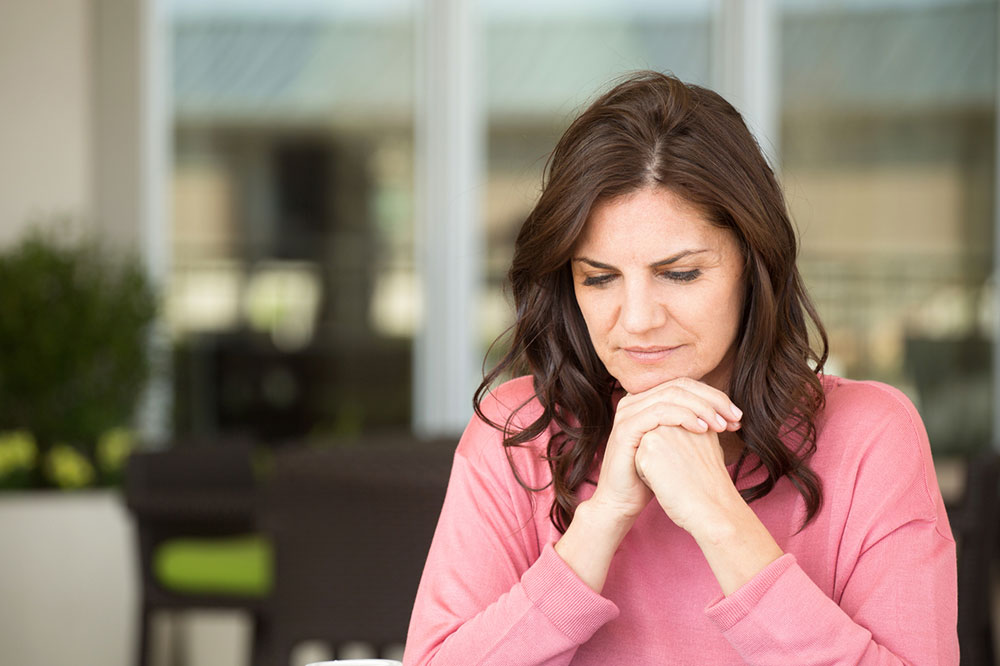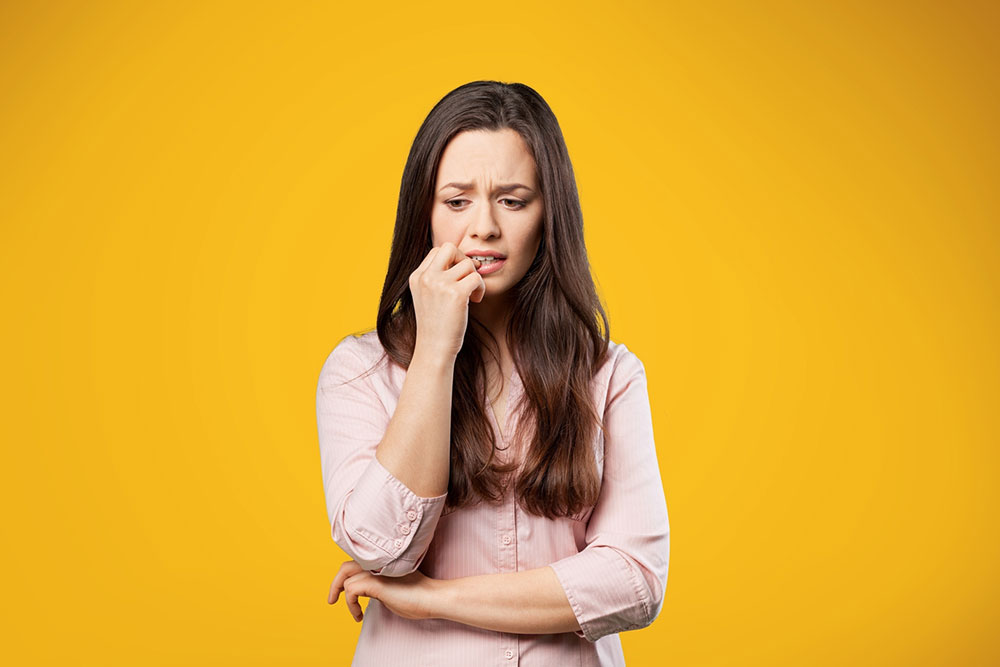Menopause Dryness – Causes, Symptoms, Diagnosis, and Remedies
Vaginal dryness is a common issue during menopause. But unfortunately, many women do not visit a health expert because they are unaware that it is a problem for which treatment is available. Menopause dryness may cause discomfort during intercourse and lower one’s desire for it. Additionally, it can make sports and other physical activities uncomfortable and increase the risk of infections. This post discusses menopause dryness remedies, causes, symptoms, and additional essential information.

What causes dryness during menopause?
A thin coating of transparent fluid keeps the vaginal walls lubricated. The hormone estrogen maintains this fluid and ensures the organ’s lining remains healthy, thick, and elastic. This hormone produced by the ovaries also performs other functions. For instance, it regulates how the female body, including the breasts and the body’s contour, develops. It also plays an essential role in pregnancy and the menstrual cycle.
Estrogen levels start to fall as menopause approaches. Consequently, the amount of moisture drops, leading to dryness. Women of any age can experience such hormonal fluctuations and thus dryness, but it is more prevalent in older women during menopause. It might cause mild to severe irritation, making it hard to focus on routine activities.
How to know if a person is approaching menopause?
During the transition, the female body may undergo subtle and not-so-subtle changes. One might encounter pre-menopause symptoms like irregular periods, hot flashes, sleep problems, mood changes, decreasing fertility, changing cholesterol levels, and vaginal and bladder problems. The transition period usually starts between 45 and 55 years and can last as long as 14 years.
During menopause, one may experience vaginal dryness, discharge, genital itching, recurrent urinary tract infections, and problems with urination, such as burning and urinary incontinence. Light bleeding and discomfort during or after intercourse are also common. The menopause symptoms list also includes shortening and tightening of the vaginal canal and soreness of the vagina.
What causes vaginal dryness other than menopause?
Besides menopause, there are many reasons why estrogen levels can decrease and lead to dryness. These include childbirth, breastfeeding, chemotherapy, radiation therapy, and anti-estrogen treatments for breast cancer or endometriosis. Women who undergo surgery to remove the ovaries may also experience lower estrogen levels. Further, Sjogren syndrome, an autoimmune condition, can irritate the tear and salivary glands.
Treatments for underlying health conditions can also cause dryness. For instance, antihistamines that dry down secretions to treat cold and allergy symptoms cause vaginal dryness and difficulty peeing as side effects. Similarly, specific treatments occasionally cause adverse effects, including a dry vagina and lowered libido. Stress can also lower estrogen and have similar effects.
Menopause dryness can be exceedingly disturbing, regardless of the cause. It can cause burning, itching, and painful intercourse. Women who follow unhealthy lifestyle habits may go through menopause sooner, leading to faster onset of vaginal dryness. Thankfully, menopause dryness remedies can help. But it is advisable first to visit a doctor for a diagnosis.
How is menopause dryness diagnosed?
Visiting a doctor or gynecologist is advised if there is burning, itching, or discomfort in the area. To diagnose the problem, healthcare experts inquire about the patient’s past health records, how long the individual has been experiencing the symptoms, and what causes them to get better or worse.
After examining the patient’s health history and analyzing the symptoms, a pelvic exam may be recommended. The doctor looks for thinning or redness in the vaginal region. It helps eliminate other potential reasons for discomfort, such as a vaginal or urinary tract infection. The doctor may also take cells from the cervix or vaginal wall for a Pap test.
What are the menopause dryness treatments?
Menopause dryness can significantly lower one’s quality of life if not treated. One can follow these menopause dryness remedies and treatments after consulting a professional:
Topical cream with estrogen
One of the best remedies is to apply a cream or gel-based estrogen solution to the vaginal area to treat the symptoms. It can help rid dryness and irritation and relieve discomfort.
Oral estrogen treatment
A person utilizing a topical cream will get less estrogen than oral treatments with the hormone. However, oral options can have side effects, so it is advisable to consult a doctor before using them.
Moisturizers and lubricants
A person can increase moisture in the vaginal region by using lubricants during intercourse. However, oil-based lubricants might cause irritation, so water-based options are preferred. Moisturizers may help preserve the vagina’s natural moisture if applied every one or two days.
Regular intercourse
Studies suggest that intercourse is also an effective menopause dryness remedy. Increased blood flow to the vaginal tissues helps with moisture production.
A common sign of low estrogen, even at the beginning of menopause, is menopause dryness. Although it is unlikely to have a significant negative impact on health, it may nonetheless cause discomfort. One can consult a gynecologist and use these menopause dryness remedies for relief.




